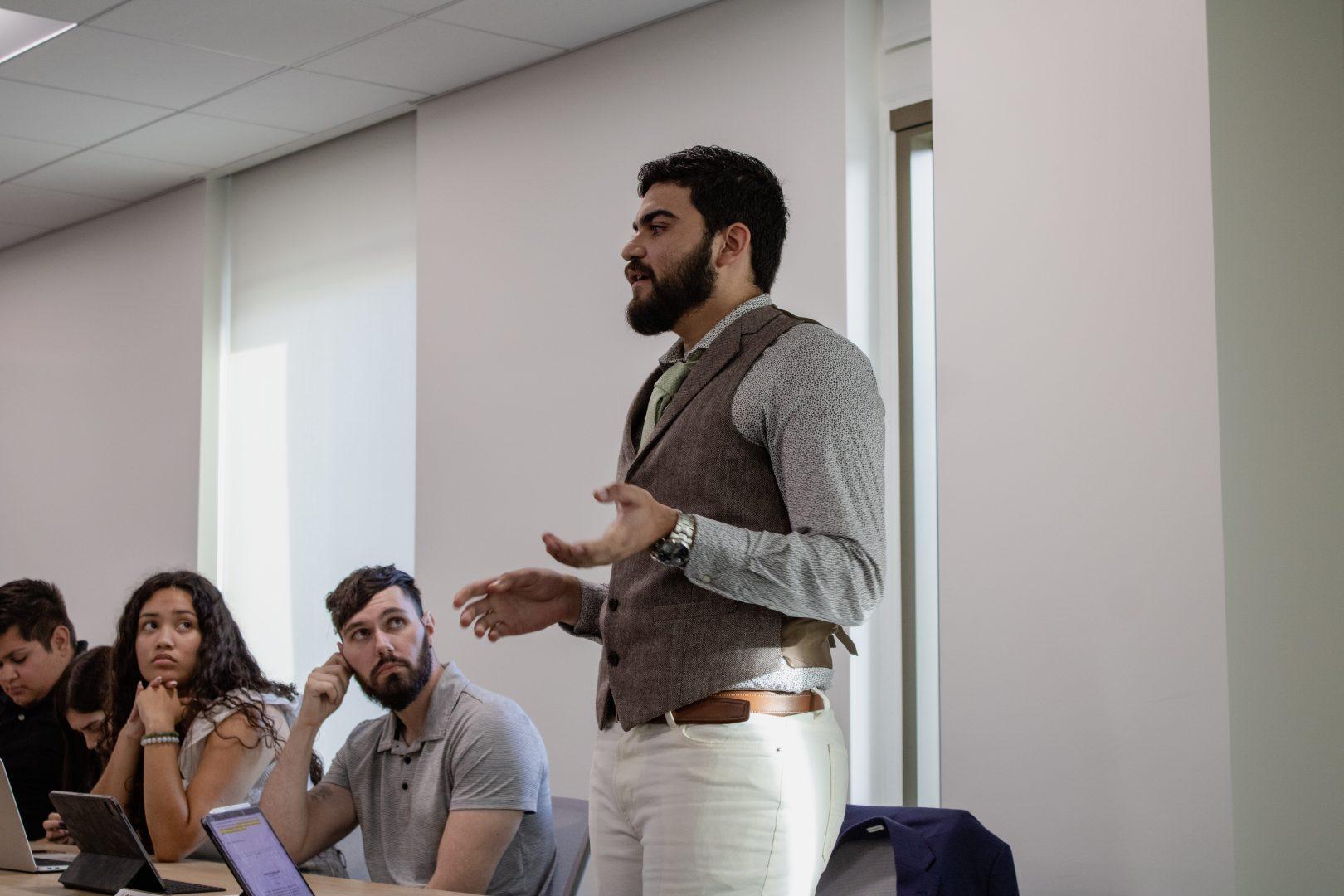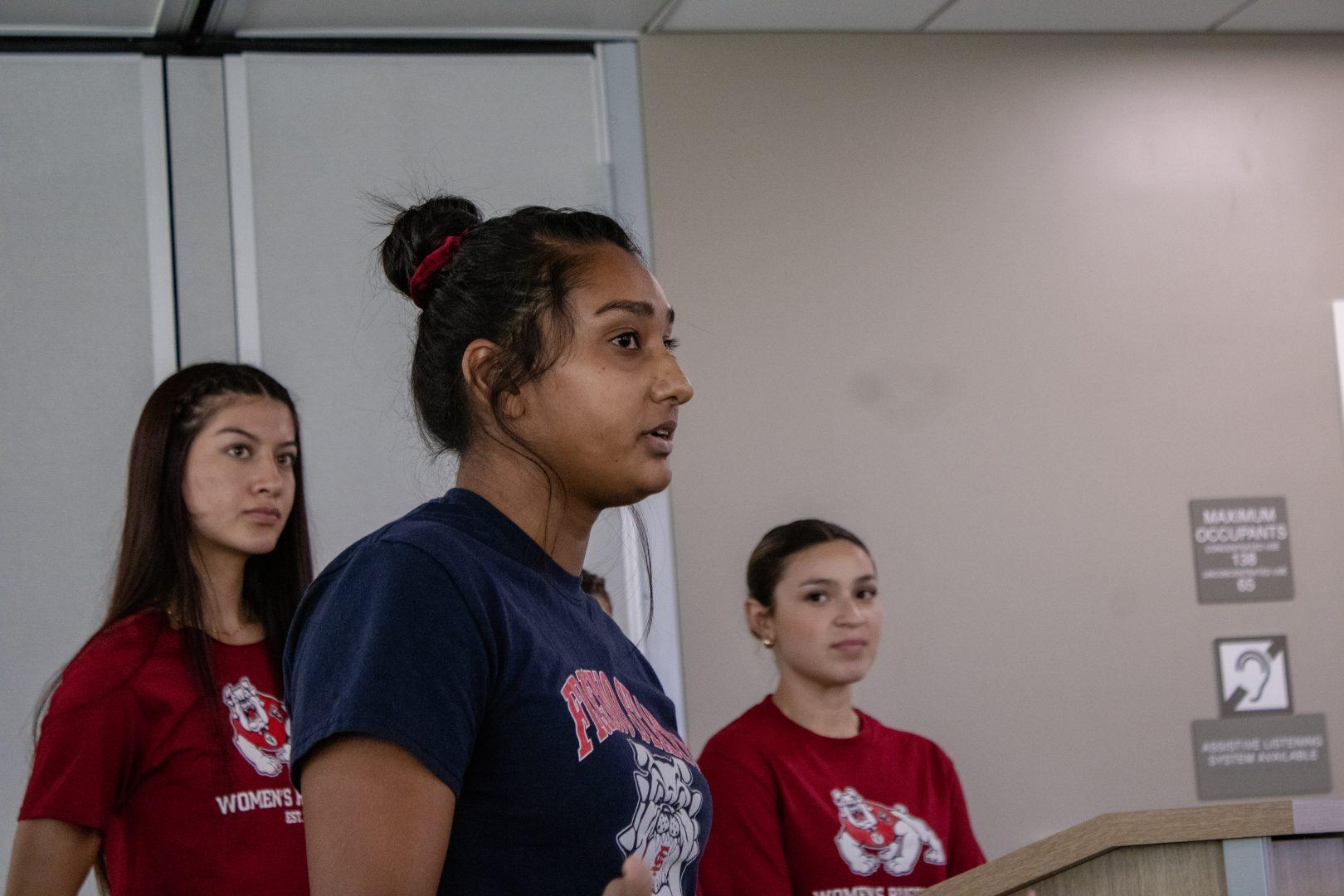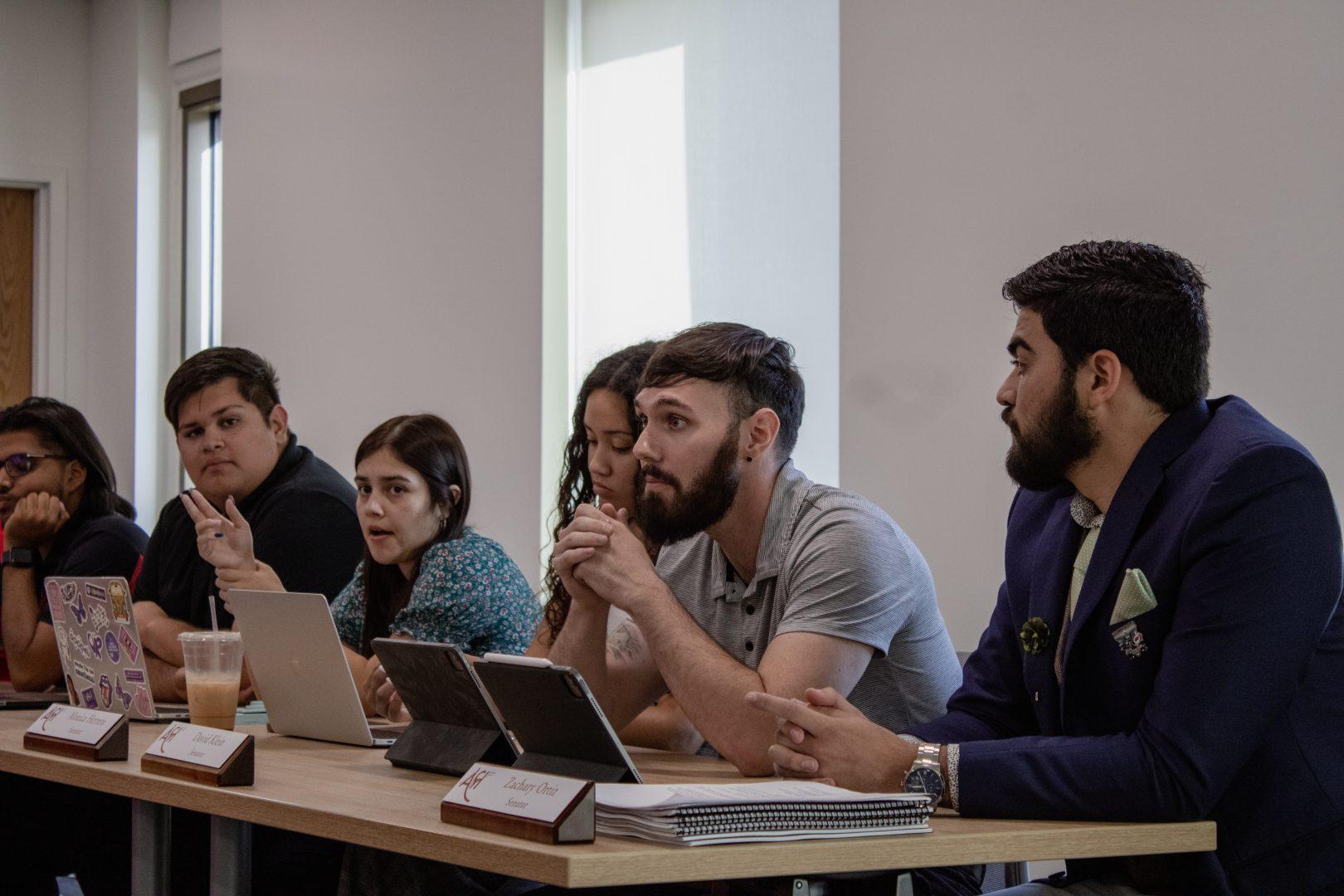Fresno State’s Associated Students Inc. (ASI) gathered for a senator meeting on Oct. 19, discussing its newly approved stipend pay and practice locations for club sports.
ASI Sen. Aidan Garaygordobil, also speaking for ASI’s legal committee, began the meeting by proposing a change in the policy that would lower the required hours to five per week for senators who waive their stipend.
Although there was heavy debate between both topics, no action was voted on for either club sports or senators pay because they were both discussion items.
According to Garaygordobil, senator for the College of Arts and Humanities and also a reporter for The Collegian, ASI senators are paid $250 twice a month through a stipend unless they are out of town, gone for a prolonged period of time or have not completed 20 hours of work during their stipend period.
However, senators who have another auxiliary job on campus also cannot get compensated by ASI. Therefore, they have to either waive their stipend or no longer serve in the Senate.
“This is out of our control and is controlled by auxiliary HR [Human Resources]. Essentially, senators [without pay] are still required to meet the same amount of hours as a requirement of a senator that is paid…The legal committee believes this is no longer equitable,” Garaygordobil said.
Since some senators are not able to accept the money because they are working another job, Garaygordobil believes this to be unfair.
Currently, ASI senators must work 10 hours a week whether or not they are able to get paid.
“This would cut down the amount of work they put in drastically while still giving a moderate amount of time for them, and a reasonable amount of time for them, to complete their duties as a senator,” Garaygordobil said.
Karen Carrillo, ASI executive vice president who also serves on the legal committee, said it will give senators, who are also students, the opportunity to work for ASI and focus on their own financial responsibilities that pay their bills.
Other senators like Megan Torres agreed with Carrillo and Garaygordobil that five hours is reasonable and supported the policy change.
However, others like Zachary Ortiz said it’s unfair for students who want to schedule time to meet with senators, saying a five-hour minimum wouldn’t allow that.
A senator can choose to spend five hours on meetings and reports and not include time for students, Ortiz argued. He said many students in Fresno State deal with being overworked while having other jobs also, so senators should do more as well to accommodate.
“That’s not fair for all the students that voted us in, especially for the [students] that have other jobs that are working at night or during the day and then they come to school and are barely sleeping. But they’re still doing everything? It’s just not fair,” Ortiz said.

Garaygordobil agreed but stood by his stance that it’s also not fair for senators to not get paid for those hours talking to students. He said with this proposal, senators are not limited to five hours and it would be their choice whether or not they speak to students.
They decide how to use their time to represent the Bulldog community, Garaygordobil said.
He also noted that other senators, using Ortiz as an example, go beyond the current 10-hour requirement to serve, so lowering the requirement to five accommodates other senators who aren’t able to do the same amount of work.
ASI Sen. Federico Madera also agreed with Garaygordobil, saying the right to decide to go beyond five hours should be given to the senators.
ASI Sen. David Klein disagreed.
“I think a lot of us are kind of forgetting the privilege that we have to be sitting in these seats and how it’s not necessarily meant to serve us the best, but it’s meant to serve our fellow students the best,” Klein said
Klein said now that he’s in his second year in ASI, he believes senators who do get reelected will do the bare minimum when given the choice.
“I hate to put ASI in a bad light like that, but there very much are senators who will do the bare minimum and this is going to enable that even further,” he said.
He said while it makes it more equitable for the senators, it makes it less so for the students who want to communicate with ASI. Ortiz agreed with Klein.
“If you can’t fulfill the minimum hours, then I believe there are students out there who can and who would see this as a privilege to serve those required hours,” Klein said.
Carrillo disagreed with Klein’s sentiments and said the hours assigned doesn’t account for the impact a senator can make to students. It’s possible ASI senators can create the same or more impact with less hours, she said.
“At the end of the day, you guys were voted in here because you were trusted by your student body to serve your constituents the best way you guys believe… you’re capable of doing. So I trust my senators can create great impact in five hours,” Carrillo said.
With time ending for that discussion item, ASI moved on to the next item and talked about club sports. The senate gave the floor to Chetna Kumar-Naicker, a player for the women’s rugby team.
Kumar-Naicker said both rugby teams, men’s and women’s, are struggling to find a field. The team is currently practicing at Vinland Park at Gettysburg Avenue, which Kumar-Naicker said has poor, unsafe conditions for players.
“There’s so many potholes and the ground is super hard. As you guys know, rugby is a very contact sport… We did have a couple of girls in the beginning [who], when we first started doing practices on that field, got hurt and that kind of changed their mind about the sport,” she said.

Last year, the men’s rugby team suffered the same issues with players getting their cars broken into. The team was permitted to use the kinesiology field with lights by the Fresno State Police Department because of those issues, but according to Kumar-Naicker they are no longer doing so.
The kinesiology field is also not the best field because it’s small compared to rugby fields and it has things like glass from previous tailgates, Kumar-Naicker said.
Ortiz said the rugby teams received “a really terrible contract” from Fresno State for this year, and one reason is because they can no longer practice on the kinesiology field.
“It got overturned. Now, they can no longer do any of those things on that field. They can only hold tournaments or games on the weekends if no one has booked it,” he said.
Other organizations like intramural sports have priority over club sports, Ortiz noted, so he said this is an issue for all club sports, not just rugby.
Ortiz also said Vinland Park has cigarette butts on the field, unhoused people and recently had a shooting there, so it is a liability to Fresno State if a player gets injured.
Rugby is proposing a minimum of four hours per week to practice on the kinesiology field. According to Ortiz, the main problem is not money but scheduling the competing time with intramural sports.
Ortiz is also working with Head Coach Jeff Tedford and the Athletics Department to determine if the old lacrosse field is also an option.
Kumar-Naicker said as a student who pays tuition, she feels she has the right to play on those fields.
Correction Oct. 26, 2022:
In a previous version of this article, Sen. Karen Carrillo’s name was spelled incorrectly. The amount senators get paid monthly, and the amount of years Sen. David Klein has served were also incorrect.




